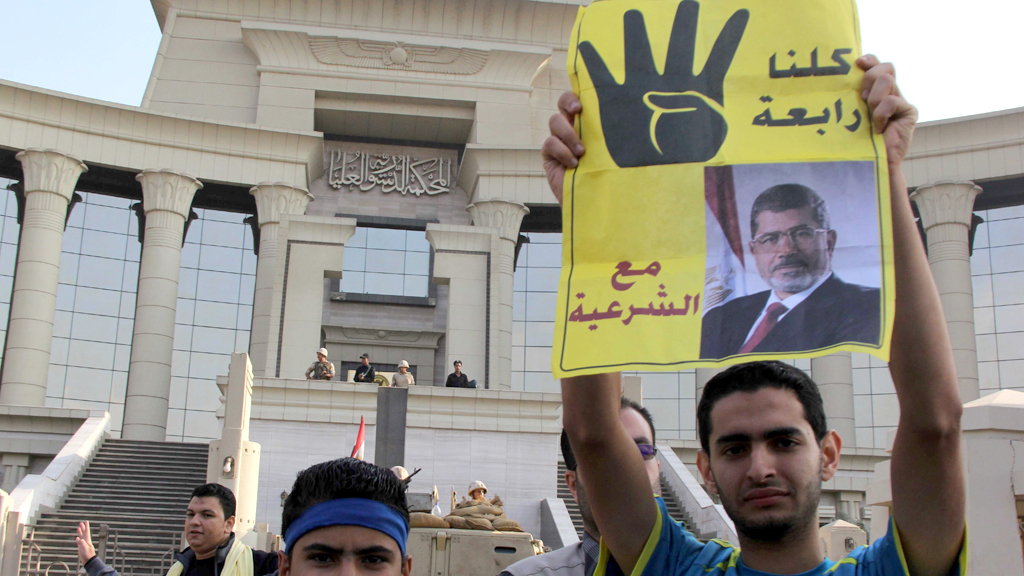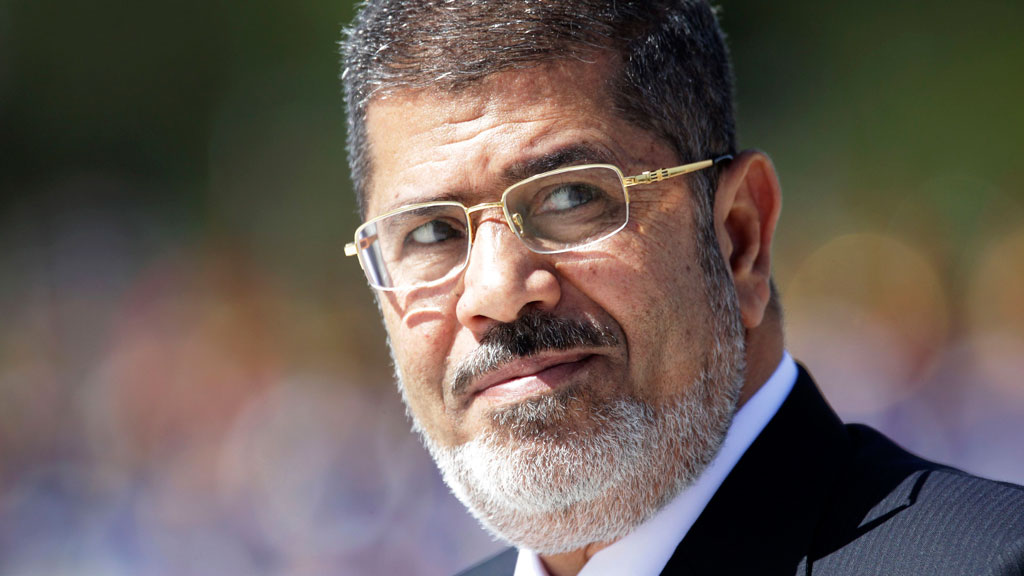A Test of the Justice System

Following his abduction by the military and four months of detention, the democratically elected president of Egypt, Mohammed Morsi, has finally emerged in the dock of an Egyptian criminal court sitting at an unknown site.
However fairly or unfairly the judges deal with the case, the circumstances surrounding it are highly political. Morsi's first words in court made that clear, when he described himself as the legitimate president of the country who had been ousted by a putsch. A symbol of Morsi's willingness to challenge the judges is the argument over whether he should wear prison uniform or civilian clothing.
Egypt on trial
It's not just Morsi who's on trial, but the whole country – the old regime, the government dominated by the Muslim Brotherhood, and the current military rulers. Morsi's trial runs parallel to that of his predecessor, Hosni Mubarak – and the Egyptian justice system is facing a test as to whether it will judge both cases by the same standard.

There's every chance that Mubarak will get off scot-free in the end, while Morsi will go to prison. One reason for that is that the state institutions repeatedly sabotage the case against Mubarak, while they are likely to work happily with the courts against Morsi. That's a sign how far the country's security apparatus is still in the hands of the old system.
Selective accountability
It could well be that Morsi will be found responsible for the death of demonstrators, while the security services and the military will go without punishment for their deeds of recent years. Such selective accountability is unlikely to lead to a calming of the situation in the country.
The trial is not a solution for the political crisis in the country but a reflection of the unstable situation. The Muslim Brotherhood and the coalition which is opposed to the putsch is not strong enough to change the direction in which Egypt is going, but they have been strong enough to cripple the country for months with their protests.
And that leads us to the military's biggest problem: it knows that time is working against it. Most Egyptians are still jubilantly supporting the army chief, Abdel Fatah El-Sisi, as a saviour in their hour of need.
But El-Sisi can see what might happen if he fails at least to start to solve the people's problems in the coming months – he only has to look at the trials going on against Mubarak and Morsi.
Karim El-Gawhary
Translated from the German by Michael Lawton
© Qantara.de 2013
Editor: Lewis Gropp/Qantara.de
